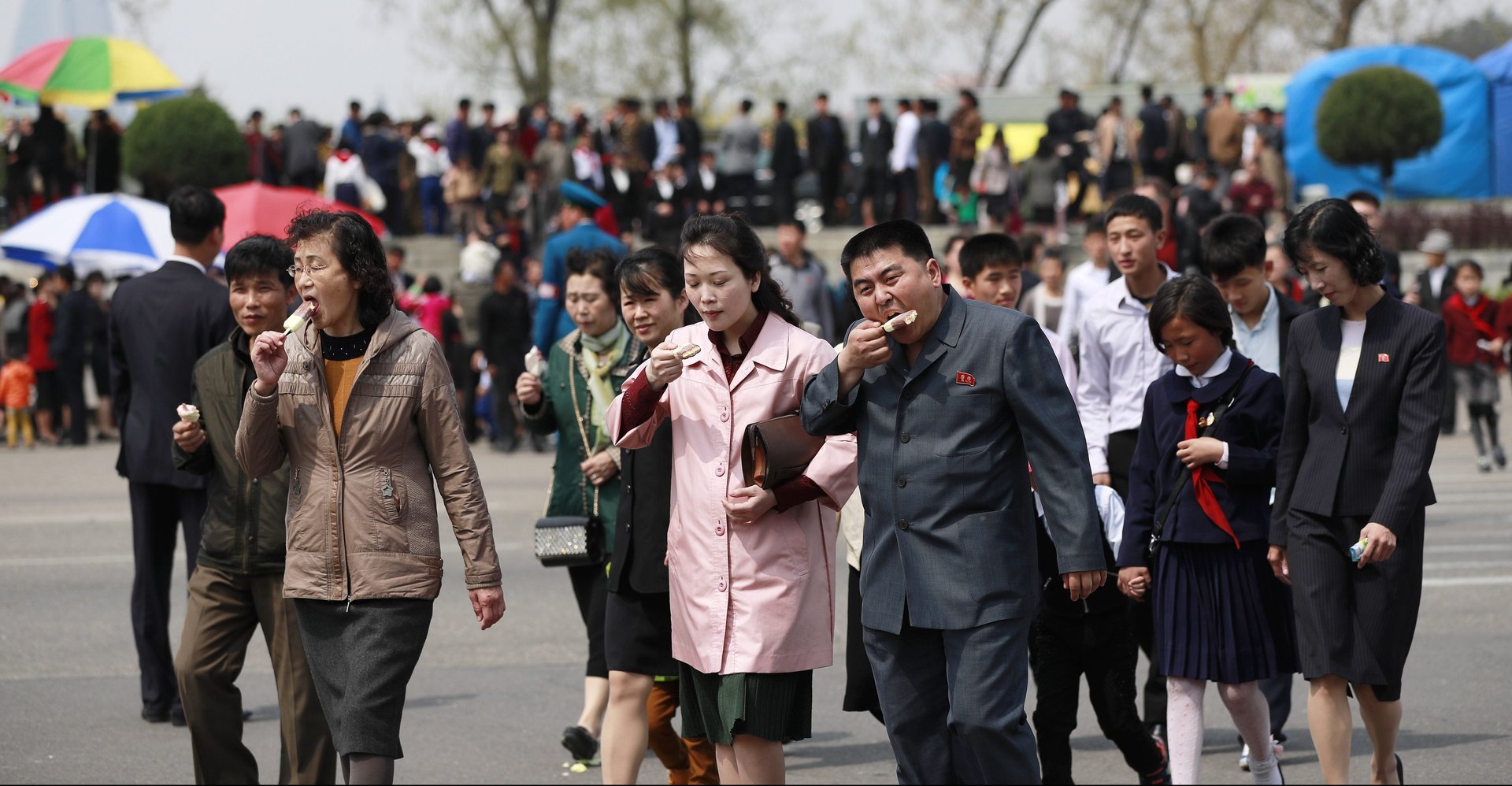North Korea’s economy is booming
Sanctions, what sanctions? Kim Jong-un is partying like it’s 1999.


Sanctions, what sanctions? Kim Jong-un is partying like it’s 1999.
Data released today by South Korea’s central bank (link in Korean) showed that in 2016 North Korea’s economy grew by 3.9% from a year earlier, the fastest pace in 17 years, and bouncing back from 2015 when its economy contracted by 1.1% largely because of drought.
North Korea’s trade volume also increased 4.6% from a year earlier; one estimate says that North Korean mineral exports to China accounted for 54% (paywall) of trade with China in the first half of 2016. (North Korea has vast mineral resources.)
As China is Pyongyang’s largest trading partner, the latest figures will likely lead to more vocal calls from the international community for Beijing to do more to pressure its increasingly belligerent neighbor.
Last week, China said that trade with North Korea grew over 10% to $2.55 billion in the first six months of 2017 from a year ago, but maintained that its trade relationship with North Korea does not violate any sanctions. China in February said it would suspend coal imports from North Korea.
South Korea has been providing estimates on North Korea’s economy since 1995 as Pyongyang doesn’t publish its own statistics. Some experts, however, cast doubt on the accuracy of South Korea’s figures because of the opacity of information coming out of North Korea.
Henri Féron, a Korea expert at Columbia University, noted in a recent piece that there are multiple signs that North Korea’s economy is booming—and not all of it can be dismissed as mere Potemkin showpieces. There is a construction boom of high-rise buildings in the capital—foreign journalists visiting Pyongyang were treated to a first look at luxury residential developments—and residents can now shop at a Muji-like Chinese chain.
North Korea also imported a record number (paywall) of tablets and laptops from China in 2016. Overall, these developments show the growing role of the market economy (paywall) under Kim’s rule, challenging the “common prejudice that North Korea must be one of the poorest countries in the world,” according to Féron.
To be sure, many of these developments are likely restricted to North Korea’s capital city, which Kim is eager to showcase to visiting journalists and other dignitaries, while keeping access to the often deeply impoverished rural areas heavily restricted. And yesterday (July 20) the UN’s Food and Agriculture Organization announced North Korea’s food production could be seriously damaged by the country’s most serious drought since 2001. That should also temper any rosy outlook for North Korea’s economy this year.